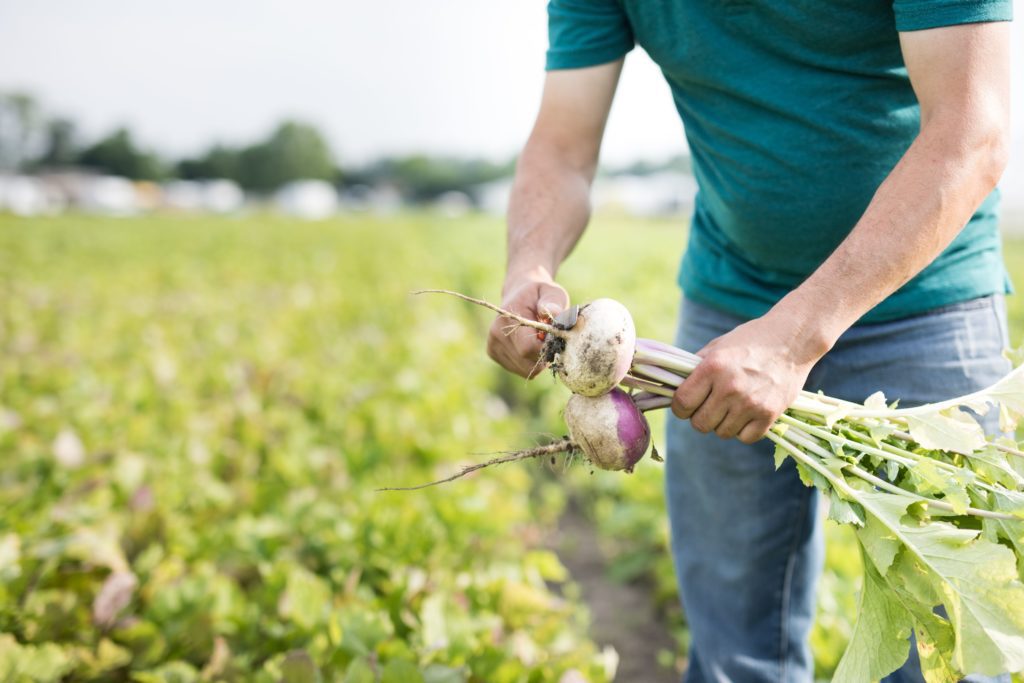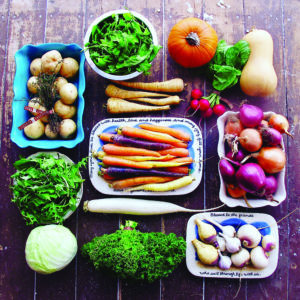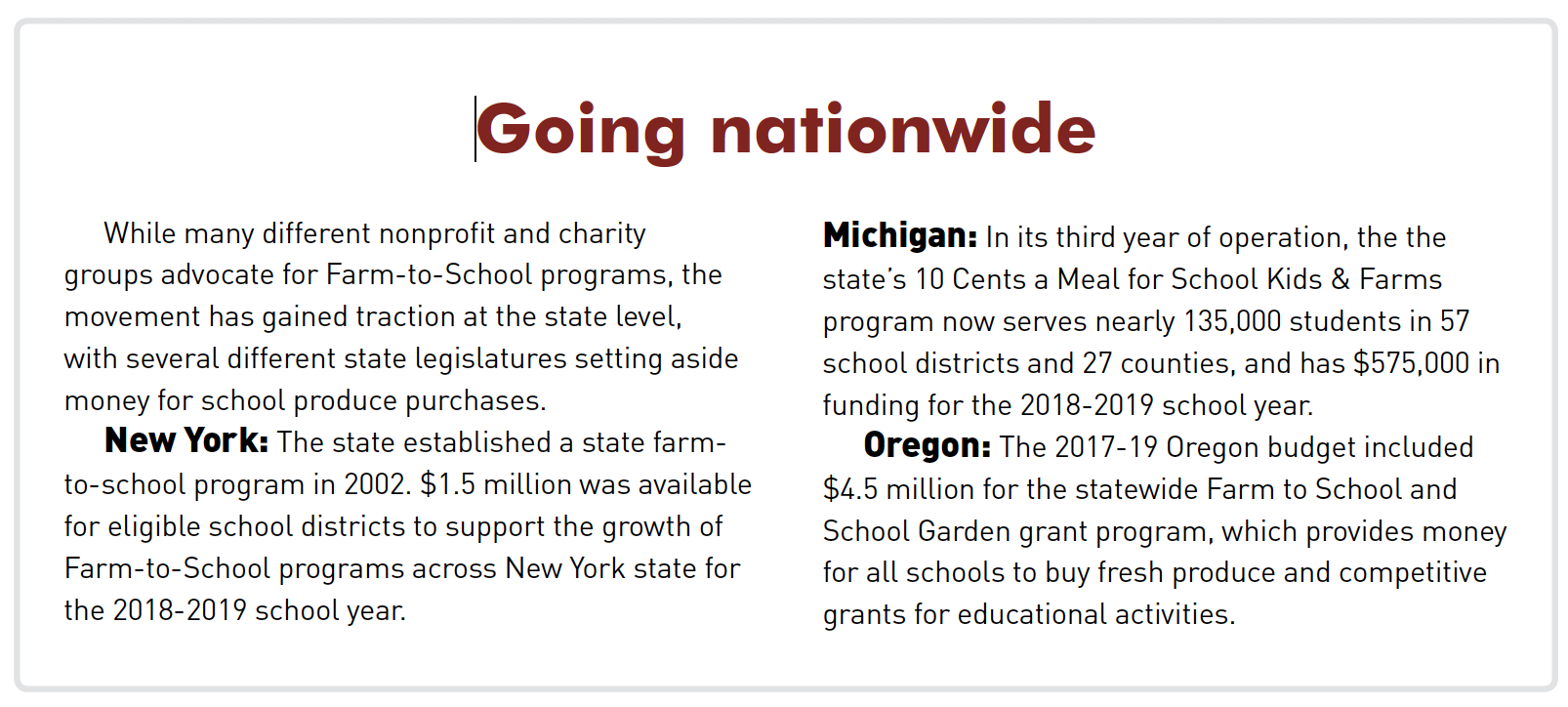
Feb 14, 2019Large to small growers move crops with Farm-to-School movement
Providence Farm is a small vegetable-and-livestock operation in Michigan’s Antrim County, with a community supported agriculture (CSA) program and a roadside market.
But owners Ryan and Andrea Romeyn say direct sales to schools have led to the “dreamy” experience of doing a profitable higher-volume business in carrots. They harvest more than 20 acres of carrots, boxing them and shipping them out.

A national farm-to-school movement represents a growing opportunity for sales for small-to-medium specialty crop growers.
A wide variety of local programs and nonprofit groups use the Farm-to-Table idea or name, and a wide variety of purchases are made. A USDA survey once found that schools purchased nearly $780 million a year in local food from farmers, ranchers, fishermen, food processors and manufacturers. The United States Department of Agriculture estimated the expenditures have only risen since the survey was conducted in 2015.
Producing policy
States like Michigan, New York and Oregon have grant programs encouraging school foodservice directors to buy local, and local growers are qualifying for orders.
In Michigan, a program called the 10 Cents a Meal Program is in its third year, now serving nearly 135,000 students and shelling out $575,000 in grants to the school districts after being expanded two years in a row.
“It’s been successful, and getting more successful. … It’s one of those things that take some time to catch on,” said former state senator Goeff Hansen. “It’s not as easy as ordering from your regular supplier.”
Hansen is a former grocery chain businessman from Oceana County, often called the “asparagus capital of the world.”
Hansen – whose term ran out at the end of 2018, chaired the state Senate K–12, School Aid, Education Appropriations Subcommittee, which introduced the initial funding for the program.
“It’s bringing the communities together more,” he said of the program.
The program works by providing 10 cents a meal in matching funds to purchase locally-grown fruits and vegetables. School districts that receive grants from the state are reimbursed for purchases they make. As the 10 Cents a Meal Program has grown, it’s not only inspired more direct sales between growers and schools but also has supported regional distributors, also called food hubs, who specialize in locally-grown foods – two thriving distributors are Michigan Farm to Freezer and Cherry Capital Foods.

Scaling up
Providence Farm carrots sold through Cherry Capital Foods are a high-volume business and result in some sales to non-school entities far away. Romeyn said some of the carrots have been shipped as far as Chicago – more than a five-hour drive.
Ryan Romeyn, her husband, said that scaling up the carrot-growing operation came with a few hurdles.
Hand-pulling the carrots led to a labor issue. One year, in 2015, the harvest was delayed by wet weather that left the ground with the consistency of a “chocolate shake,” in Andrea’s words.
“We were still pulling them, but then it dropped to 10 degrees and then they froze,” Ryan Romeyn said. The farm has since acquired a mid-1970s KES top-pull root harvester. The farm has also invested in its irrigation system and also a carrot washing line, and taken out a loan to do so.
A good market for a product and the ability to consistently produce are key in scaling up production.
For growers looking to scale up, “my advice would be, get comfortable growing it,” he said. “Figure out your pricing on it – figure out what you need to make on it to make it worthwhile. Then look at tools to help, and invest.”

are widely distributed, including to schools
throughout Michigan.
Direct sales and distributors
Providence Farm started selling carrots directly to schools in 2012, but now also sells its carrots through Cherry Capital Foods. One interesting direct customer is the school on Michigan’s Beaver Island – Andrea Romeyn delivers the food to the airport for transport there.
Another local school asked Romeyn to visit the cafeteria to talk about her produce.
“I had a fun time,” she said. “I just think it’s always worth your time to help children understand where their food comes from.”
Many other schools, though, aren’t ready for direct sales and prefer to work through distributors. And although most growers might take pride in supplying the schools, not all have the time to give presentations or even do their own deliveries. The group that started the local pilot program for the 10 Cents a Meal Program, the Groundwork Center for Resilient Communities, has always recognized that the farm-to-school movement has to be good business for growers.
“It’s about getting good things into the schools but it’s at the same time about building Michigan’s economy,” said Diane Conners, a policy specialist for Groundwork. “This is not a charitable effort, where we want growers to be donating to schools – it is where they are building business relationships and building the economy.”
Distributors like Cherry Capital Foods help larger growers like Hudsonville, Michigan’s Victory Farms provide vegetables to schools.
Victory Farms – owned by Michigan Rep. Roger Victory – cultivates about 800 acres and the vast majority of its produce is sold to mass distribution markets.
Farm Manager Jordan Bremer said selling to smaller, regional distributors like Cherry Capital Foods is still worth the effort, even though it makes up less than one percent of the farm’s total sales.
“Every little bit helps,” he said. “If it’s profitable it still makes sense to us. It’s partly to help the schools and partly because it’s so profitable.”
– Stephen Kloosterman, VGN Associate Editor
Above, Hudsonville, Michigan’s Victory Farms cultivates roughly 800 acres for vegetable production. Photo: Khalid Ibrahim (eatpomegranate)

















